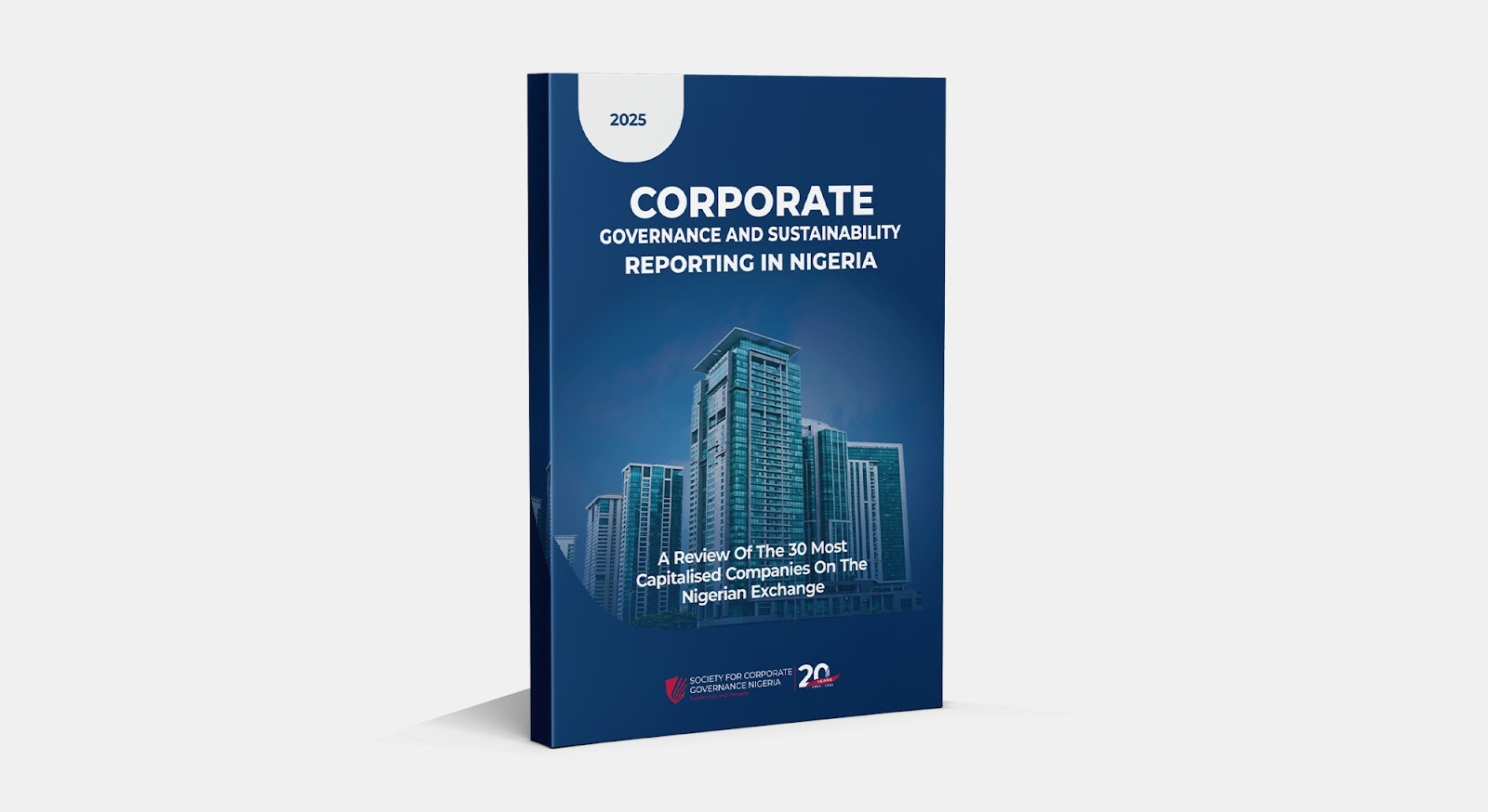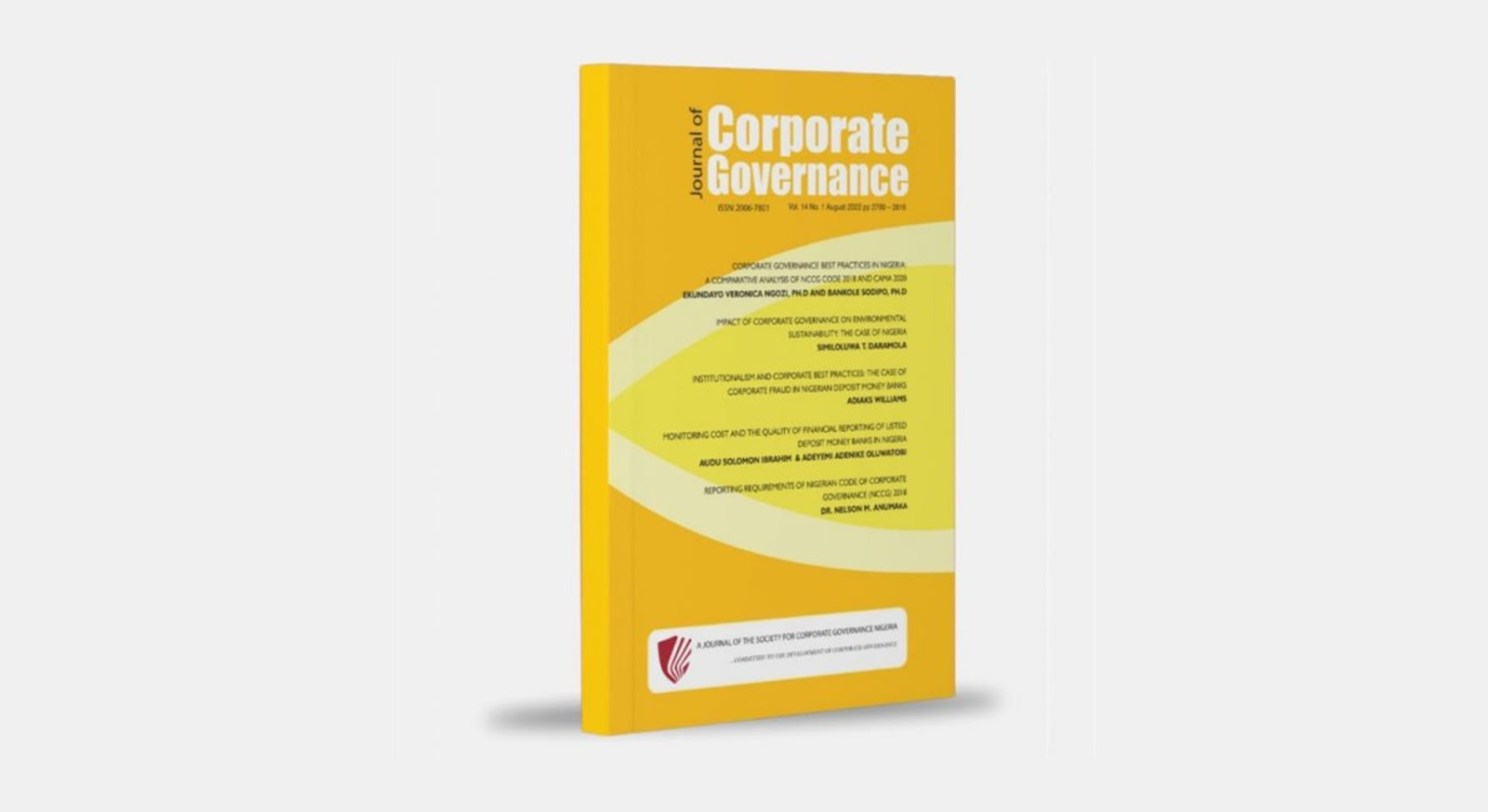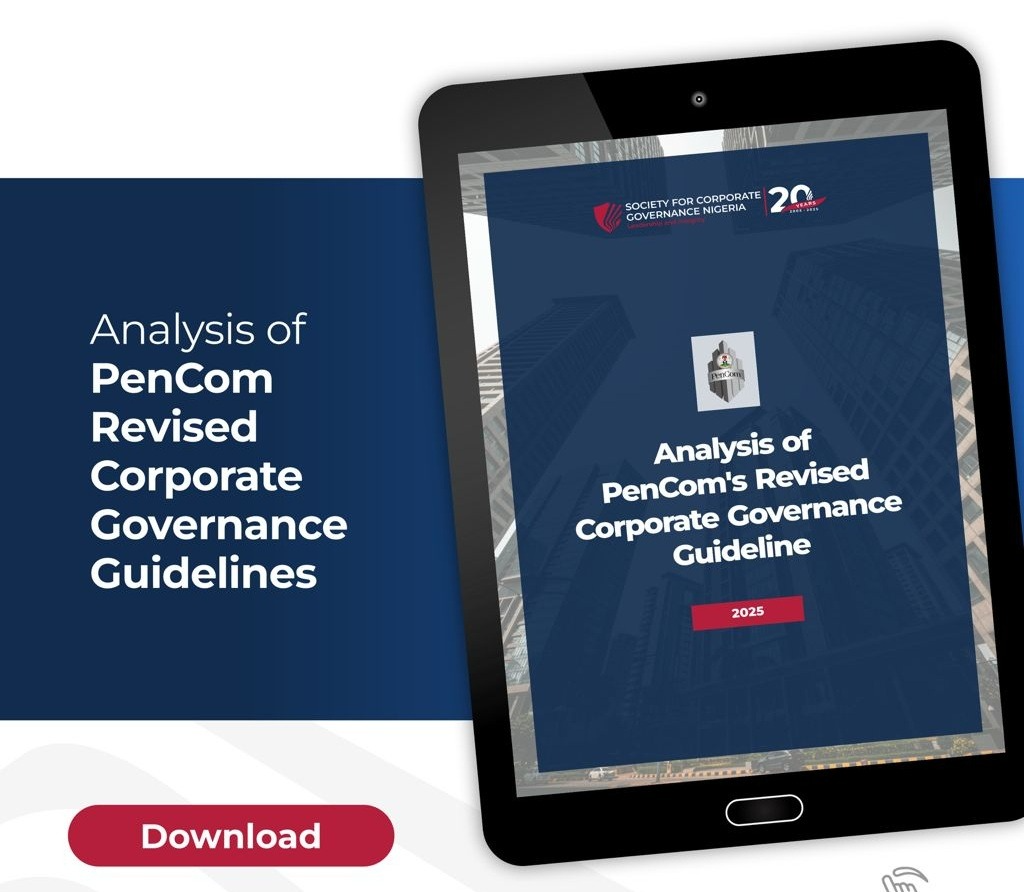In every conversation about leadership, particularly around corporate governance, one truth remains unshaken: knowledge sustains success. Of course, we can argue that power can create opportunity, but only understanding ensures continuity. This belief has strengthened the Society for Corporate Governance Nigeria for twenty years, shaping its work and its influence on Nigeria’s corporate culture and even across the globe.
At its twentieth anniversary, the Society returned to this central idea. Governance, at its core, begins with learning. Similarly, ethical leadership is not a natural-born instinct; it is built through discipline, exposure, and reflection. This conviction defines the Society’s new body of work, a collection of three publications that together reaffirm its purpose and intellectual vision for the years ahead.
Knowledge as the Lifeblood of Leadership
For two decades, SCGN has connected thought to practice, translating the principles of sound governance into realities that fit the Nigerian context. Its new publications continue that work, giving our members and the world insight drawn from experience and research.
The first, Governance in Motion: 20 Years of Corporate Governance Influence and Impact, serves as both a record and a reflection. It traces how the Society has shaped governance culture in Nigeria while drawing from the experiences of leaders who have defined that journey. For example, voices such as Jim Ovia, Tony Elumelu, Atedo Peterside, Professor Mervyn King, Dr Ibukun Awosika, and Mrs Bola Adesola contribute essays that reveal the personal and institutional effort behind the country’s governance evolution.

We believe strongly that this book was not written as a commemoration of our 20th year anniversary but as a conversation about the future of corporate governance. It presents governance as a living process, not a completed project. Each page shows how ethical leadership is sustained not by regulation alone but by a willingness to keep learning. For readers in business, public service, or academia, it offers both memory and guidance. It reminds them that progress is maintained only when leaders remain students of their own experience.
The Meeting Point of Governance and Sustainability
The second publication, Corporate Governance and Sustainability Reporting in Nigeria: A Review of the 30 Most Capitalised Companies on the Nigerian Exchange 2025, extends the discussion. It examines how Nigeria’s largest companies are integrating governance with sustainability, revealing a broader view of responsibility in modern business.
Through research and detailed analysis, the study reviews governance structures, gender representation, and sustainability disclosure among the top thirty firms listed on the Nigerian Exchange. It includes a foreword by Dr Emomotimi Agama and contributions from KPMG Nigeria and Dr Wahab Shittu, SAN, whose combined insights add depth and credibility.

This work captures a turning point in corporate thought. It shows that governance can no longer exist apart from sustainability. Environmental and social concerns have become part of boardroom priorities, not as public relations exercises but as indicators of long-term strength. The study is frank about the progress made and the challenges that remain. It calls attention to the need for institutions to see transparency not as a burden but as a measure of maturity.
The Continuing Classroom of Governance
The Journal of Corporate Governance, Volume 18, continues the Society’s tradition of scholarship. It is a compendium of new research on governance for start-ups, non-profit organisations, fintech firms, and enterprises operating in digital environments. The essays explore how ethical leadership can survive in times of technological change and uncertainty.

Contributors such as Busayo Nsikak-Inyang, Nduneche Ezurike, and Adeyinka Adeyemi present practical ideas drawn from current realities. Their work demonstrates that governance in the twenty-first century is not only about compliance; it is about adaptability. The Journal remains a meeting place for thinkers and practitioners who understand that leadership evolves through dialogue.
Through this continuous publication, the Society sustains its role as an institution of thought. It nurtures a community that values questioning as much as conformity and analysis as much as regulation.
Why These Publications Matter
Essentially, the three works form a single message: that governance is a discipline of learning. Governance in Motion provides the context of history, Corporate Governance and Sustainability Reporting offers the precision of data, and the Journal captures the pulse of new ideas.
They reflect an understanding that real progress is built on knowledge. Governance improves when lessons are recorded, examined, and passed on. The Society’s publications achieve exactly that. They transform two decades of effort into accessible knowledge that can serve boards, regulators, scholars, and young leaders seeking to strengthen their understanding of ethics in management.

In an environment often distracted by short-term performance, these works remind readers that the foundation of leadership lies in understanding. They invite reflection on how power is used, how accountability is built, and how institutions can renew trust through clarity and responsibility.
Knowledge as Legacy
Beyond their immediate value, these books preserve the memory of a generation that worked to institutionalise integrity in Nigerian business life. They document a national conversation about standards, responsibility, and trust. By doing so, they ensure that the experiences of one generation do not vanish before the next can learn from them.
We also believe that each publication captures the spirit of continuity. They remind readers that governance, like education, must be handed down deliberately. In societies that wish to grow stronger, institutions must record their learning. SCGN has done this with thought and care, turning lived experience into guidance that will endure.
SCGN Analysis of PenCom’s Revised Corporate Governance Guidelines
In addition to the three major publications, the Society has also released a detailed Analysis of PenCom’s Revised Corporate Governance Guidelines 2025. This resource provides expert interpretation and practical insights into the updated requirements issued by the National Pension Commission.

The analysis is available for download on the SCGN website and serves as a valuable tool for pension operators, regulators, trustees, HR professionals, and governance practitioners seeking clarity on compliance expectations and implementation strategies.
The Next Chapter
More importantly, as the Society looks to the future, its new publications carry a quiet message. Influence does not come from visibility alone but from the depth of ideas that outlast moments. Again, we strongly affirm that these books represent that kind of influence. They preserve twenty years of reform and discussion, making it available to anyone determined to build a stronger culture of leadership.
In an era where information often overwhelms insight, the Society’s work stands out for its clarity. It distinguishes knowledge from noise and urges decision-makers to think with patience and precision. The message running through all three works is simple yet profound: governance is not a set of rules but an ongoing education.
How to Access the Publications
Copies of Governance in Motion, Corporate Governance and Sustainability Reporting in Nigeria, and the Journal of Corporate Governance Volume 18 are available from the Society for Corporate Governance Nigeria. Visit https://corpgovnigeria.org/publication/ for purchase and delivery options, or contact the SCGN Secretariat via the website for enquiries and institutional orders.

